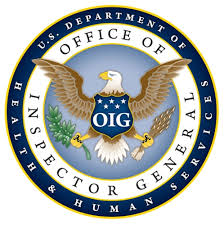State Health Insurance Exchanges Face Many Challenges
While there are methods for overcoming some of the challenges linked to operating a state-run health insurance marketplace, high costs and low enrollment rates are affecting the entire system negatively.

- The creation of health insurance exchanges throughout individual states after the passage of the Affordable Care Act has not been an easy process. Many state health insurance exchanges have experienced a variety of challenges over the last few years, making it more complex for the Department of Health and Human Services (HHS) to ensure health coverage among American consumers.

The Office of the Inspector General issued a brief outlining some of the obstacles standing in the way of the health insurance exchange as well as methods for overcoming these hurdles. Some basic difficulties include the general implementation and operation of the state health insurance exchanges as well as oversight of these marketplaces.
Determining eligibility among consumers for healthcare coverage and processing enrollment paperwork are some other challenges the government is facing when managing state health insurance exchanges. Additionally, these state-based marketplaces also take part in enrolling qualified consumers for the Medicaid program.
The number of stakeholders – ranging from contractors and partners to providers and insurers – taking part in these marketplaces is also quite large, which makes timely communication a struggle.
Payment system and eligibility
Some areas that federal and state health insurance exchanges will need to focus on include payments and eligibility, the OIG brief stated. Because of manual systems, the secure spending of taxpayer funds may pose a problem and HHS will need to develop an effective payment system that reimburse in a timely and accurate manner. Additionally, risk assessments need to be incorporated into the payment system as well as error rates to better analyze the accuracy of the program.
Ensuring that consumers are eligible for a particular healthcare coverage or possibly the Medicare or Medicaid program is essential when managing an insurance marketplace. A review of oversight regarding eligibility from the Office of the Inspector General shows that some internal controls may be ineffective.
The results also illustrate that some exchanges are unable to accurately verify some self-reported data and information gathered from other sources. Toward the end of the year, more consumers will be re-enrolling in health insurance exchanges and these marketplaces will need accurate internal controls to determine the eligibility of consumers for certain benefits or programs.
Administration and security
As previously mentioned, overall operation and oversight along with communication are some clear challenges that need to be met in order to ensure state health insurance exchanges function effectively. One of the main ways to overcome this obstacle is to work with qualified contractors and offer the necessary oversight of the marketplace.
Ensuring that grants are appropriately managed and that contractors work on deadline and on budget are some of the key goals government agencies will need to pursue. Additionally, the security of private consumer information needs to be protected. Secure collection of consumer data needs to be implemented between federal and state sources and insurers.
Ongoing analysis and quality improvement processes are vital when managing the security of funds and private information throughout the healthcare system. Developing effective security measures is non-negotiable when it comes to operating state health insurance exchanges.
 “The Department must continue to improve the federal Marketplace, including the public-facing consumer functions, as well as the back-end administrative and financial management functions,” the OIG brief stated.
“The Department must continue to improve the federal Marketplace, including the public-facing consumer functions, as well as the back-end administrative and financial management functions,” the OIG brief stated.
“The Department must ensure that alternate pathways for enrollment operate with integrity and that consumers' personal information is secure. The Department must operate a well-run second open enrollment period for individuals and small businesses, employing lessons learned, taking all steps practicable to avoid problems that marred the first open enrollment period and rapidly and effectively addressing any problems that arise.”
“Vigilant monitoring and testing and rapid mitigation of identified vulnerabilities are essential. In addition, attention must be paid to sound operation of financial assistance and premium-stabilization programs. The Department must ensure that consumers and issuers receive accurate Marketplace information, including information relevant for tax purposes, such as Form 1095A tax forms.”
Financial difficulties of state-run marketplaces
While there are methods for overcoming some of the challenges linked to operating a state-run health insurance marketplace, the Associated Press reported that high costs and low enrollment rates are affecting the entire system negatively.
Hawaii was managing a marketplace recently, but was unable to continue operating and has since turned over the healthcare exchanges to the federal government’s marketplace for 2016.
“The viability of state health insurance exchanges has been a challenge across the country, particularly in small states, due to insufficient numbers of uninsured residents,” the office of Hawaii Democratic Gov. David Ige announced in a statement.
The District of Columbia and 12 other states have full control of their health insurance marketplace, but many estimate that about half of these regions are experiencing financial challenges in operating the exchanges.
At this point in time, almost $5 billion has been spent on startup costs for the state health insurance exchanges and it was expected that these markets would be self-sustaining. However, low enrollment rates have made running these exchanges a bit more complex. Nonetheless, now that the federal government can continue subsidizing premiums throughout each state, there is less of an issue when markets may need assistance from Healthcare.gov.
“Each state has a different set of circumstances that informs their approach, and we will continue to support their efforts,” Mayra Alvarez, the federal liaison to state marketplaces, told the news source.
